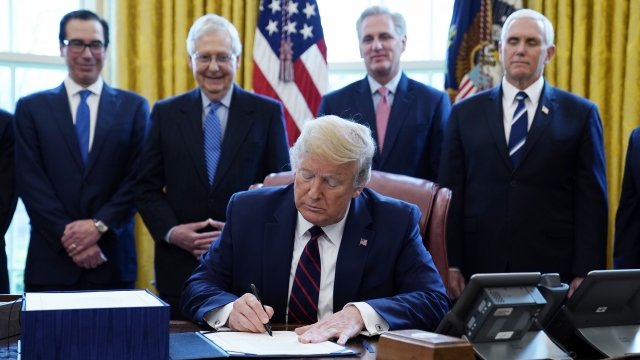National security attorney Brad Moss explains how former President Donald Trump faces espionage charges for willfully retaining national defense secrets.
"The Espionage Act is kind of a misleading title for it. It encompasses numerous things beyond what you would think of as spying or espionage. The danger of having classified records and particularly national defense information exposed like it was at Mar-a-Lago, is that any number of unauthorized parties can get ahold of it. It can be troop movements. It can be intelligence intercepts. It can be knowing that we, the simple fact that we know how to spy on a particular foreign government official. It could be showing off intelligence sources in terms of where we have information coming from. Sometimes the information itself is bland and boring. But the fact that the U.S. government is able to gather that information is an intelligence method they don't want other countries knowing about because it undermines the U.S. government's ability to collect that information," Moss said.
The indictment itemizes secret and top secret records on foreign countries' nuclear and military capabilities, details on potential vulnerabilities of the U.S. and allies, America's nuclear program, and a timeline of an attack on a foreign country.
It describes documents stored in a ballroom and a bathroom, and how months after the National Archives started requesting the documents in 2021, the former president shared secret military information on Iran, and acknowledged he did not declassify it.
SCRIPPS NEWS SASHA INGBER: What exactly do you believe could be in the Iran War plans document?
BRAD MOSS: What this Iran document no doubt displayed was the Defense Department outlines [of] its plans of how a potential number of different potentials, a range of strikes could take place: What would be involved, what the estimates were for timeframes, casualties or damages, both to U.S. property, but also in Iran. Those are the basic things that would come up in an assessment that would be provided to the president and to senior policymakers before making a decision like that on whether or not to launch a strike.
General Mark Milley, the chairman of the Joint Chiefs of Staff, was reportedly concerned that after Trump lost the election, he would try to create a crisis with Iran to remain in power and end up starting a full-scale war.
Moss says that even if special counsel Jack Smith does not have the Iran document Trump described, Trump's remarks and dozens of recovered national defense records will still underpin the case.
"You do not bring these types of charges in general. You don't bring them against the former president. You certainly don't bring them against Donald Trump unless you have a rock solid set of facts. And I believe that's what we're going to see Jack Smith has," Moss said.
SEE MORE: Officials optimistic Trump arraignment protests won't get out of hand
Trending stories at Scrippsnews.com




